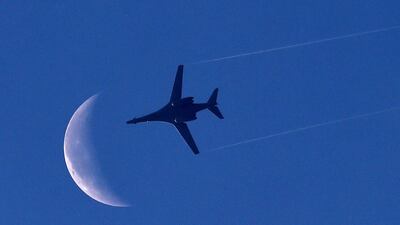NEW YORK // As coalition warplanes strike oilfields that provide ISIL with a substantial amount of its income, private donation networks in the Gulf may again become an important lifeline for the extremist group.
While the world is focused on the airstrikes and ground battles in Iraq and Syria, there has been a flurry of activity by United States and Gulf officials to address what they call one of the key elements of the strategy to “degrade and ultimately defeat” ISIL: combating private fund-raising.
Retired General John Allen, who is Barack Obama’s special envoy to the anti-ISIL coalition, said on October 15 that several Gulf states have taken steps to enforce counterterrorism laws more effectively, “including Kuwait’s newly created financial intelligence unit, Qatar’s new law regulating charities...to oversee all charity work and contributions”.
A “main takeaway” from his talks with coalition partners was that “while the military side is important to the outcome …it is not sufficient” by itself. Gen Allen will travel this week to the Gulf to aid efforts to disrupt extremist financing, he said.
US officials have met with their Qatari counterparts in recent weeks to discuss financing issues, as they increase pressure on Doha to do more to enforce new counterterrorism financing laws.
The US treasury last month designated a number of ISIL and Al Qaeda financiers with ties to Qatar, some of whom had been previously jailed and then released in the country.
On Friday, the US departments of state and treasury hosted a working group meeting attended by over 20 countries and organisations aimed at finding ways to “financially isolate” ISIL, Al Nusra Front, and the Al Assad regime, according to a state department statement.
Private fund-raising networks based primarily in Kuwait and Qatar were instrumental in providing the seed money for extremist groups in Syria. But as ISIL grew it was able to become self sufficient, through criminal activity in Iraq, and the war economy in Syria where it earns through smuggling, kidnapping, taxation and control of oilfields.
But experts say the private financing is likely to again grow in importance for ISIL as it is slowly pushed back, its communications and command and control networks disrupted and its fighters dispersed into local populations.
The airstrikes on oil infrastructure will again mean Gulf donors “will again return to being a crucial part of the terrorist groups’ revenue stream”, said David Weinberg, a fellow at the Washington-based Foundation for Defense of Democracies.
“The air power coalition against [ISIL] cannot complete its mission so long as the group can still rely on private donors from some of these places to keep them in the black,” he said.
The treasury designations targeted individuals in Kuwait and Qatar whose networks also facilitate the flow of foreign fighters from across the Gulf, and also raise funds for extremist groups in other parts of the region, from Somalia and Yemen to Pakistan and Lebanon.
“Fund-raising networks still matter,” Mr Weinberg said.
tkhan@thenational.ae

